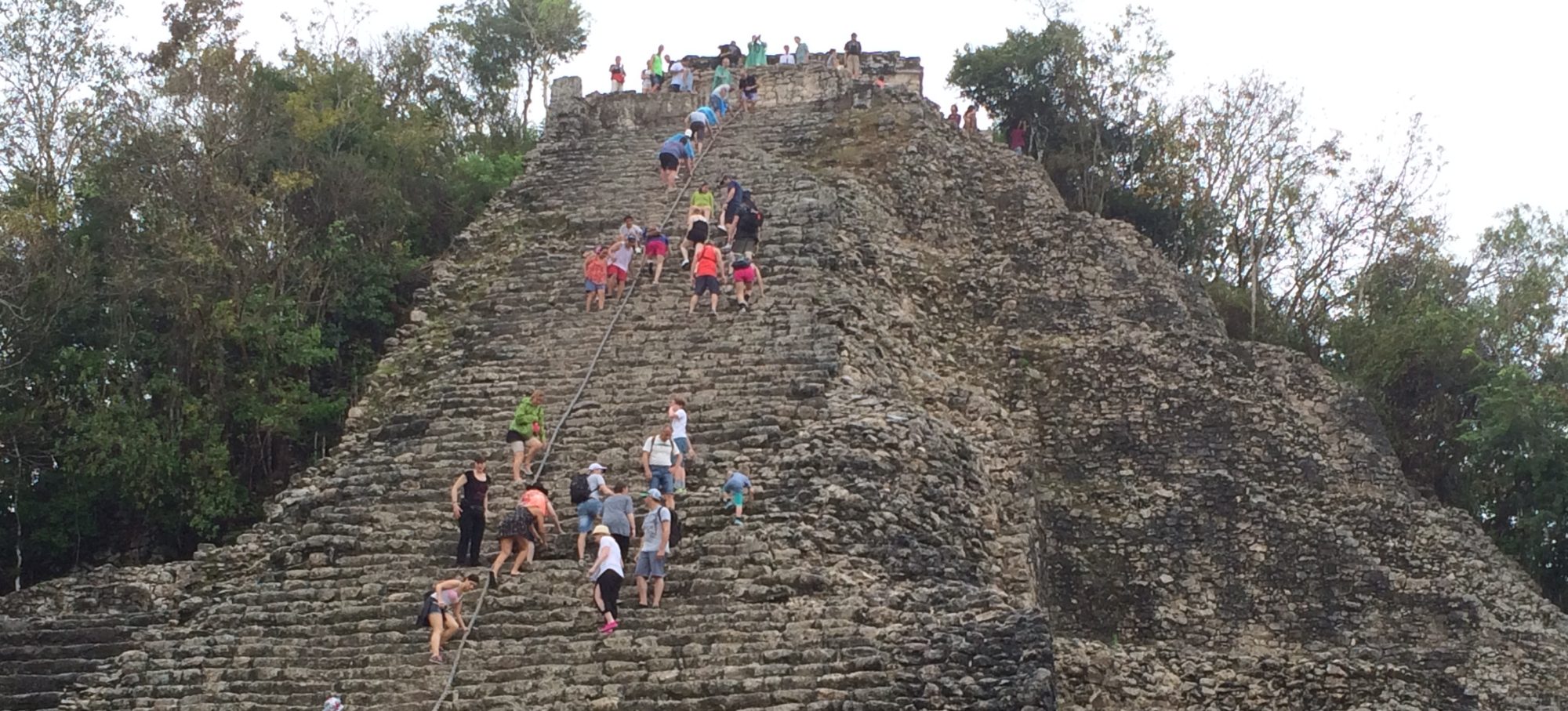September 10, 2022 Professor Lisa Lucero: “The Ancestral Maya Worldview, Pilgrimage, and Conservation.”
The recorded talk is available for members at Meeting Archives.
The Classic Maya (c. 250-900 CE) subsisted as agriculturalists for over 4,000 years without destroying their tropical environment. They accomplished this feat due to their inclusive, non- anthropocentric worldview where they were one with world rather than one with nature. This worldview impacted how the Maya engaged with the environment, including places of pilgrimage. Openings in the earth, such as caves and water bodies, were seen as portals to the underworld where the Maya communed with gods and ancestors and prayed for rain. Some portals demanded pilgrimages, either yearly or for specific reasons, such as during a severe drought. Cara Blanca, Belize, is one such pilgrimage destination. It has 25 water bodies and nearby fertile soils. At one particular cenote (a steep-sided sinkhole filled by groundwater) over 60 meters (over 200 feet) deep, the Maya built a water temple and other ceremonial buildings, but not houses. Nor did they plant crops—even during the period between 800 and 900 CE when multiple, prolonged droughts struck the Maya area. Consequently, there is a minimal human footprint, even though resources are plentiful. Flora and fauna thus flourished. She argued that this type of engagement is a type of conservation—one that we can still apply today.
Maya archaeologist Lisa J. Lucero (PhD, UCLA, 1994) is a Fellow of the American Association for the Advancement of Science (AAAS) and a Professor of Anthropology at the University of Illinois at Urbana-Champaign. She was president of the Archaeology Division of the American Anthropological Association from 2017 to 2019. Her interests focus on the emergence and demise of political power, ritual, water management, the impact of climate change on society, sustainability in tropical regions, and the Classic Maya. She has been conducting archaeology in Belize for over 30 years and has written seven books and an array of articles and book chapters. Recently, she has been conducting two archaeological projects in central Belize: 1) excavating ceremonial architecture near cenotes that served as part of a examination of the pilgrimage landscape; and 2) conducting a salvage archaeology program in areas recently deforested. Dr. Lucero uses insights from traditional Maya knowledge to promote tropical sustainability and to address global climate change.

